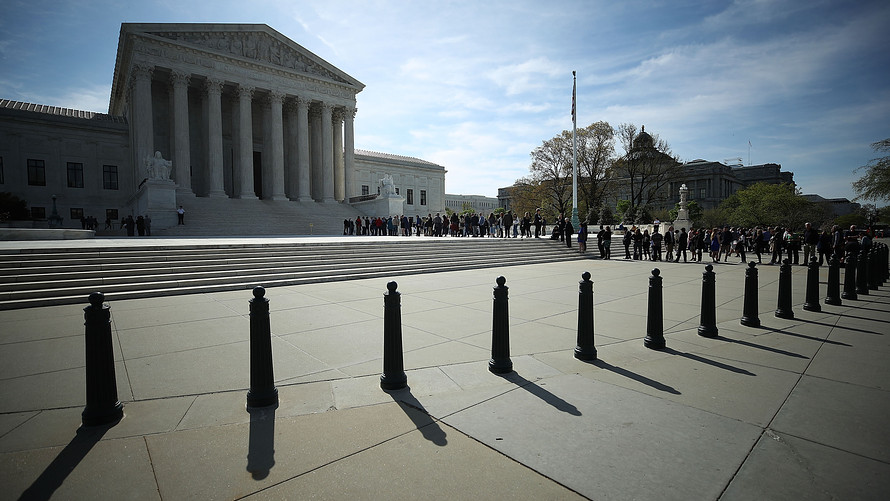The Supreme Court has agreed to decide whether plans by the Trump administration to end the so-called DACA program for young undocumented immigrants can proceed.
The justices announced Friday they will hear oral arguments on the appeal in its next term, which begins in October. A ruling is expected in the presidential election year, putting the high court at the center of one of the most politically charged issues.
Federal appeals courts around the country have rejected efforts by the federal government to move ahead with phasing out the Obama-era program, known as the Deferred Action for Childhood Arrivals or DACA.
DACA was created under executive order, and gives some illegal immigrants — known as “Dreamers” — who were brought to the United States as children the opportunity to receive a renewable two-year reprieve from deportation and become eligible for a work permit.
The Trump administration in 2017 announced its plan to phase out the program, but federal courts have ruled that the phase-out could not apply retroactively and that the program should be restarted.
Walz mocked online after GOP lawmaker floats theory in heated hearing about why Kamala Harris chose him as VP
Fox News Poll: Voters give poor marks to economy, Congress and Trump
BREAKING: Kurds Open New Front Against Iranian Regime, Launch Major Ground Offensive
Watch: Schumer Repeatedly Struggles to Condemn Iran Strikes: ‘No One Wants a Nuclear Israel’
Planning committee expecting outrage at White House ballroom meeting after 9,000 pages of negative comments
GOP begs Trump to endorse Cornyn as president teases decision ‘soon’
White House and State Department defend evacuation strategies for US citizens
Man dies after sneaking into closed section of popular national park
Hegseth Explains Utter Devastation of Iranian Regime’s Defenses – U.S. Close to ‘Uncontested’ Control of Airspace
Trump teases kingmaker endorsement in Texas ‘soon’ to force other candidate out of runoff
Leavitt says ground troops in Iran not currently being considered, doesn’t rule it out
Man killed in Texas after Border Patrol checkpoint flight and shootout
Fact Check: No, Hegseth Did Not Indicate Boots Would Be on the Ground in Iran
Spain urges Trump not to ‘play Russian roulette’ with ‘destiny of millions’ in Iran
NATO defenses shoot down Iranian missile fired toward Turkey, defense ministry says
The White House fought back on those decisions, saying the president has broad authority over immigration enforcement policy.
DACA proponents have also argued that Trump’s planned termination of the program violates federal law requiring adequate notice-and-comment periods before certain federal rules are changed, as well as other constitutional equal protection and due process guarantees.
The Supreme Court took the unusual step of taking up the cases before they had been fully heard at the lower court level.
The cases are DHS v. Regents of the University of California (18-587); Trump v. National Association for the Advancement of Colored People (18-588); and McAlleenan v. Vidal (18-589).
Story cited here.
























